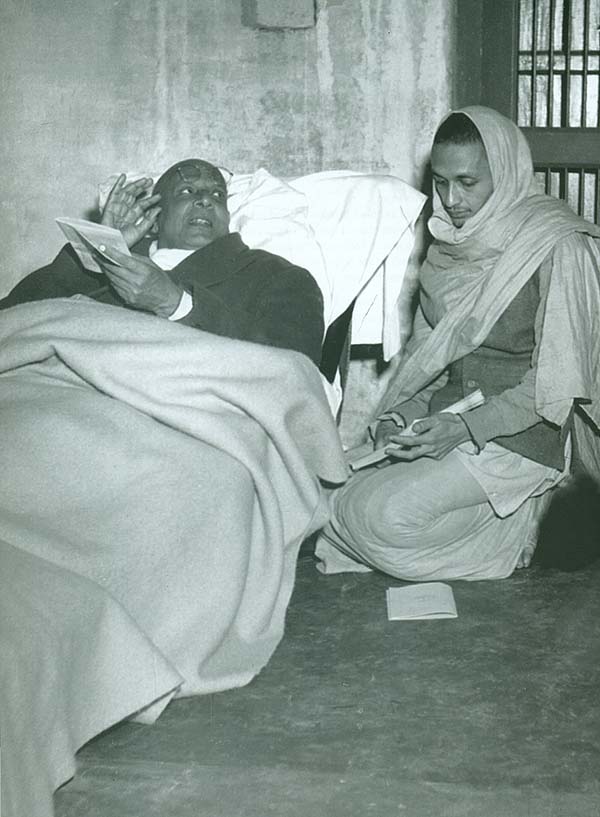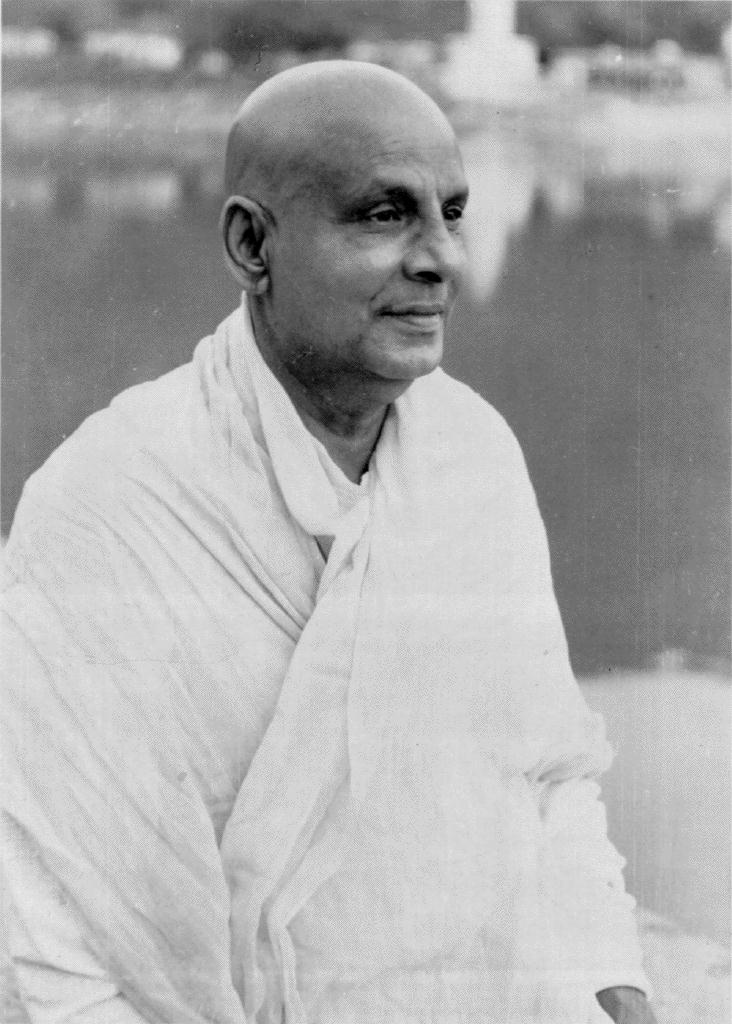ALL MEMBERS AND RESPECTED CITIZENS OF THIS HOLY BHARATHAM OF ANCIENT UPANISHADIC SAMSKARAM : #1.TEACHING IS MANAGED BY TREACHEROUS ANTI NATIONAL, ANTI MANKIND, DEMONIC URBAN NAXALS IN THE GARB OF PROFESSORS; #2.THE PRESENT GENERATION STUDENTS ARE NOT LEARNERS, BUT AGENTS OF URBAN NAXALS IN THE GARB OF STUDENT WINGS OF ASURIC POLITICAL PARTIES SUCH AS CONGRESS AND COMMUNISTS MAINLY, ADDED WITH OTHER REGIONAL DISEASE SPREADING WORMS; #3.THE PEACE OF THIS HOLY NATION IS ENDANGERED, BY THESE DANGEROUS TRENDS, AS THEY GO BEYOND ALL LIMITS OF RESPECTABILITY; #4.THE WHOLE INSTITUTION BECOMES HEATED IN TURMOIL, ENDANGERING THE FUTURE OTHER GOOD CHILDREN, WE NEED TO PROTECT THEM; #5.PURIFICATION OF UNIVERSITIES ARE URGENT NEED, JNU, AMU, JMI, LIKE CENTERS ARE CURSE TO THE NATION / / NOW READ : # Swami Sivananda and the Spiritual Renaissance - II.4.2 : Swami Krishnananda.
-----------------------------------------------------------
# OPINION : Tuesday, August 11, 2020. 4:22.AM. - 2223
-----------------------------------------------------------
# Swami Sivananda and the Spiritual Renaissance - II.4.2 : Swami Krishnananda.
(This article was written in 1946 and later on published as a booklet.)
II. The Mission of the Philosopher :4.2
4.2 : His Method of Approach
--------------------------------------------------------------------------------------------------------
1.
It is said that a sage of Self-realisation is like a pure crystal which has, by itself, no colour, but appears to assume the tint of any object that may be brought near it. Such a sage is supposed to behave, speak and act like a child with a child, an adult with an adult, an old man with an old man, a scholar with a scholar, and an ignorant one with an ignoramus. The idea behind this spontaneous self-expression, uninitiated by any particularised motive, intention, effort or will, is a close following of one’s true nature with the Divine Will, which is immanent and active in all beings, and which has neither partiality nor prejudice, neither preference nor ill will with regard to anyone.
2.
Swami Sivananda, in his personal life and example, as well as in his writings and speeches, reflected spontaneously, as it were, the nature manifested and exhibited by the environment around him, and acted in close keeping with a purely impersonal life. His works are not so much enunciations of principles for the guidance of the intellect and the reason—as is the case with several rationalistic works of metaphysicians—as practical instructions on the methods of the life spiritual, meant to go straight into the hearts of aspiring individuals, whether or not they have carefully thought out beforehand the conditions and the inner circumstances under which they have been prompted to take to the spiritual way of living by the inner call to discover what seems to be hidden in and is above nature. There is no circumlocution, no periphrasis, no superficial statements or throwing of unnecessary sidelights in his writings, but a clear-cut, well-defined and open path free from all mystifications and ambiguities is laid before the seeker with an intention not merely to give information but to enlighten and guide him at every step of his sadhana. His style and expression are remarkably simple, surging from the heart and the feeling of one who has had not only a vision of the perfection and the delight of God-Being but who possesses an insight into the sufferings of man, the depth of his ignorance which is hard to circumvent, and the need for illumination in the human world to lead a normal life—not only physical, mental and moral, but also spiritual, extended outward in the society, the nation and the world. The entire mass of his teachings is powerfully charged with the dominant spiritual note that all forms of life in society, whether individual or collective, have ultimately to be based on and derive meaning and inspiration from the recognition of a boundless existence deeper than all the visible and the conceivable orders of nature. Fired with a deep anxiety to relieve the world of ignorance and pain, Swami Sivananda girt up his loins to face the situation in the best possible manner open to him, and spared no pains in harnessing all his energy for the noble divine purpose which he set before himself. His works are illustrative of almost every way of contacting man through literature—metaphysics, ethics, religion, mysticism, psychology, parables, stories, catechism, yoga, prayer, and ritual.
3.
The student qualified to approach his spiritual literature is, as with the Yoga Vasishtha, neither one who is totally ignorant of spiritual values nor one who has attained to the apex of spiritual life. The aspirant endowed with the ethical and the moral qualifications of yama, niyama and sadhana-chatushtaya, who has, by his purity of mind, received monitions as to the existence of a higher life and is stirred with the zeal to grasp it and realise it in his own life, but is at the same time troubled by incapacities, doubts and lack of knowledge in regard to the proper method of approaching it and the spiritual way of conducting himself, should turn to the works of Swami Sivananda. As is usually the case with eminent spiritual philosophies and yoga techniques, most of his writings begin with a vivid and clear portrayal of the presence and the nature of suffering in the world, the detection of which is the first prerequisite and the fundamental stage of a spiritual way of life. Like Sankara, the philosopher, Swami Sivananda boldly affirms the existence of a Supreme Absolute, second to which there can be none; and like the Buddha, he gives a colourful picture of the character of pain in life, makes a careful diagnosis of the cause of this pain, a detailed analysis of human psychical conditions, and delineates the laying out of the path running up to the ultimate perfection and peace of man, together with a dignified description of the characteristics of his final destiny.
To be continued ...
==============================================================
JAYA HIND
JAYA BHARATHAM
VANDHE MATHARAM
BHARAT MATHA KI JAY.
==============================================================










Comments